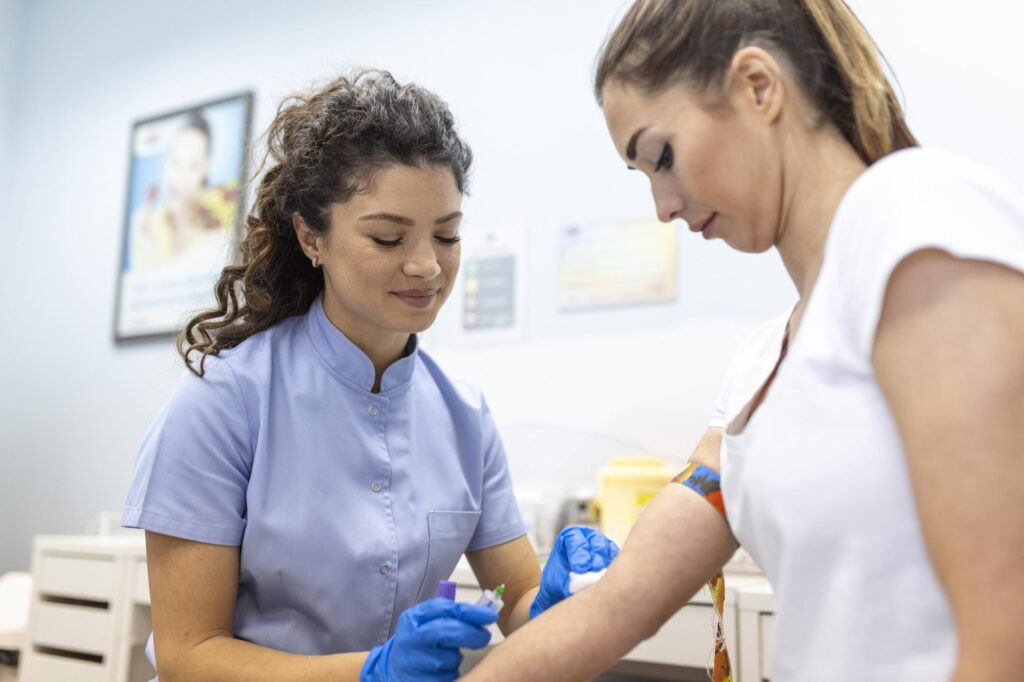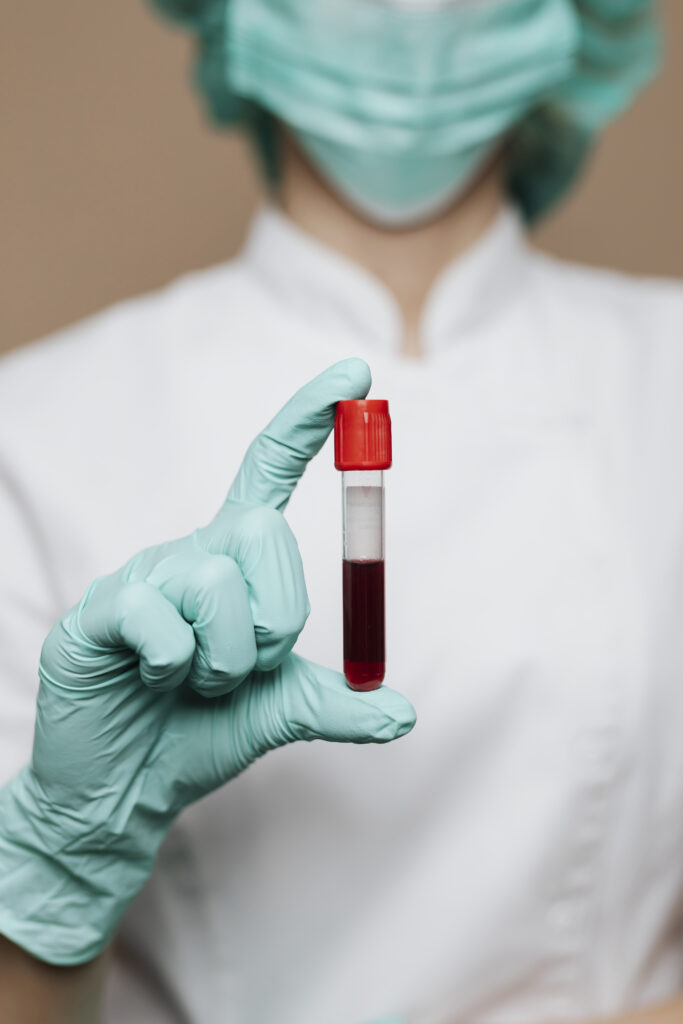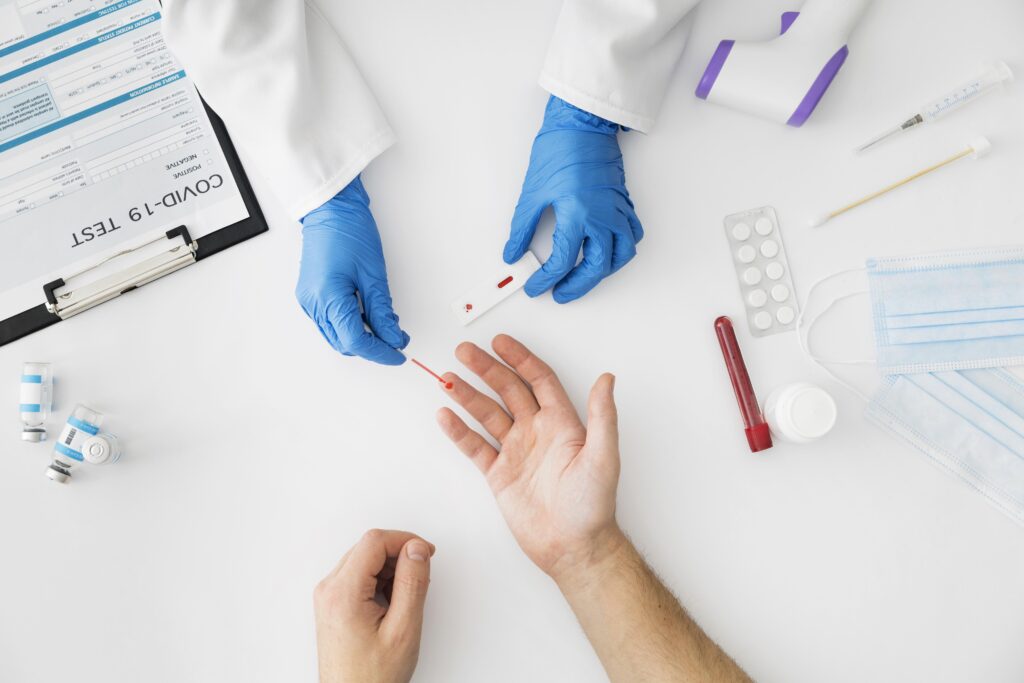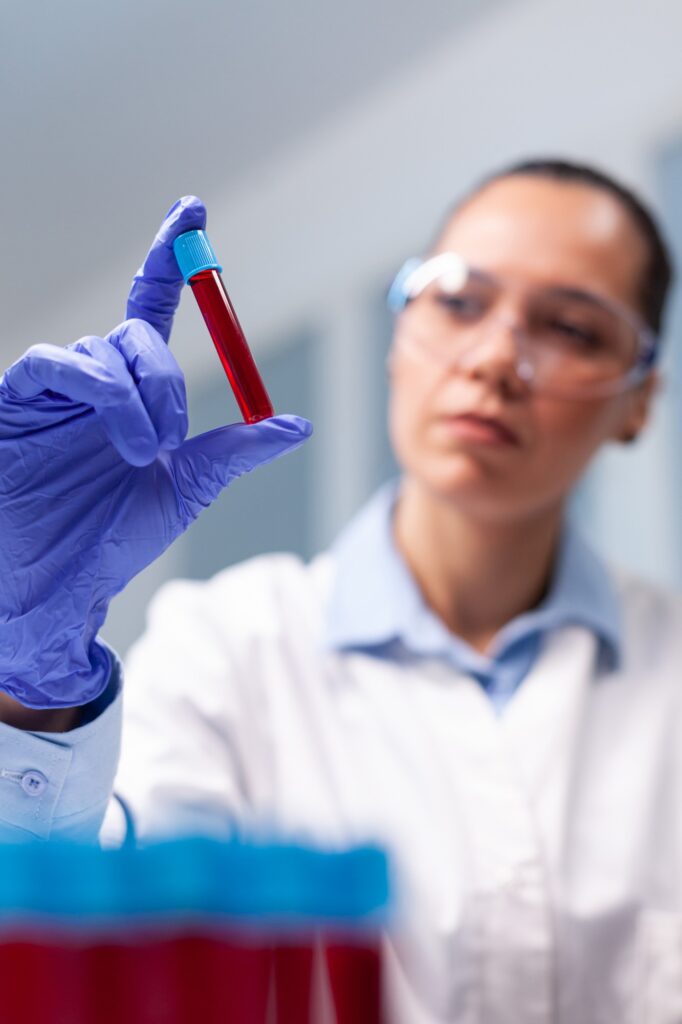Pregnancy is an exciting journey, but it also comes with the responsibility of ensuring both maternal and fetal health. One of the most crucial aspects of prenatal care is regular blood testing. These tests help detect potential risks, monitor overall well-being, and ensure the baby’s healthy development.
In this blog, we’ll walk you through the essential blood tests during pregnancy, trimester by trimester, so you can stay informed and prepared.

First Trimester Blood Tests (Weeks 1–12)
The first trimester is all about laying the foundation for a healthy pregnancy. During this period, doctors recommend several blood tests to assess your overall health and detect any potential complications early.
1. Complete Blood Count (CBC)
This test checks for anemia (low iron levels), infections, and overall blood health. A healthy blood count is essential for carrying oxygen to your baby.
2. Blood Type & Rh Factor
Determining your blood type and Rh factor is crucial. If you have Rh-negative blood and your baby is Rh-positive, your doctor may recommend an injection called Rh immunoglobulin (RhIg) to prevent complications.
3. Thyroid Function Tests (TSH, Free T4)
Your thyroid plays a key role in fetal brain development. This test ensures that your thyroid hormone levels are within the healthy range.
4. Blood Sugar (Glucose Test)
This test screens for diabetes risk and helps identify gestational diabetes early, which can impact both mother and baby.
5. Rubella Immunity Test
Rubella (German measles) can cause serious birth defects. This test checks whether you have immunity from previous vaccination or infection.
6. Screening for Infections (HIV, Hepatitis B & C, Syphilis)
Detecting these infections early allows doctors to take necessary precautions to prevent transmission to the baby.
7. TORCH Panel (If Needed)
This test screens for infections like Toxoplasmosis, Rubella, Cytomegalovirus (CMV), and Herpes, which can affect pregnancy outcomes.
8. Genetic Screening Tests (Optional)
If you have a family history of genetic disorders, doctors may recommend non-invasive prenatal tests (NIPT) to check for chromosomal abnormalities like Down syndrome.

Second Trimester Blood Tests (Weeks 13–26)
As your baby grows, new tests are introduced to monitor development and maternal health.
1. Quad Screen
This test measures four substances (AFP, hCG, Estriol, Inhibin A) in your blood to assess the risk of chromosomal conditions like Down syndrome and neural tube defects like spina bifida.
2. Glucose Tolerance Test (GTT)
Usually performed between 24-28 weeks, this test screens for gestational diabetes, a temporary condition that can affect both mother and baby.
3. Iron & Ferritin Levels
Iron is essential during pregnancy to prevent anemia and ensure proper oxygen supply to the baby. Low iron levels may require supplements.

Third Trimester Blood Tests (Weeks 27–40)
In the final stretch of pregnancy, blood tests focus on ensuring a smooth delivery and preventing last-minute complications.
1. Repeat CBC
A follow-up CBC test ensures that your blood levels remain normal before labor and delivery.
2. Group B Streptococcus (GBS) Test
This test, usually done between 35-37 weeks, checks for GBS bacteria. If positive, antibiotics will be given during labor to prevent passing the bacteria to the baby.
3. Liver & Kidney Function Tests (If Needed)
If you have conditions like high blood pressure or preeclampsia, your doctor may monitor your liver and kidney function to prevent complications.

Final Thoughts
Regular blood tests during pregnancy are essential for monitoring both your health and your baby’s development. While some tests are routine, others may be recommended based on individual health conditions.
Always consult your doctor to ensure you receive the necessary screenings and stay informed about your pregnancy journey. Your health and your baby’s well-being are worth it!
Did you find this information helpful? Share your thoughts in the comments below!
